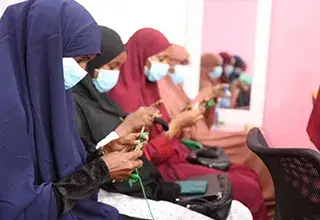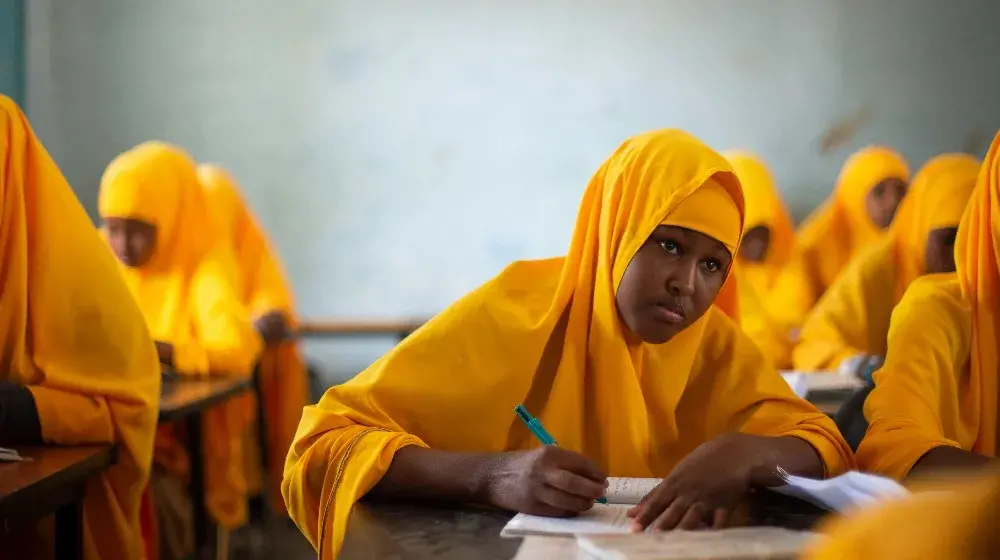The day of the FGM/C is traditionally considered an important event, but is keept secret from the pre-menarche child, and then sprung upon here once the necessary preparations have been made. Senior female members of the community, relatives, traditional birth attendants or occasionally health care workers may be called upon to cary out the procedure.
No anesthesia is used while this very sensitive part of the female body is beeing brutally cut and manipuated, except when the operation is beeing performed by health professionals who has accsess to anesthetics, and who have the required knowledge in their use.
In most cases it is done in remote villages with no nearby health facilities or healt professionals. Often, the operation is done in an unhygenic enviroment. Any sharp cutting instrument such as a knife, broken glass, razor blade is beeing used, or the operator may have acquired medical instruments like a scalpel or scissors. The instruments may be new or may have already been used for other purposes or on other persons. Sterilization is seldom known or performed by traditional operators.
- I see so many patients with complications related to circumsission, says Dr. Naema Abdiraham Bubal. She has recently established a medical clinic in Hargeisa in the autonomous region of Somaliland after studying many years abroad. As the first female gynecologist in Somaliland, the reputation of her clinic spreads, and she receives more patients every day.
- Most gynocologist are men, but since I am a female doctor, the woman finds it more comfortable to come to me with their problems, she says. During her short term of practise, she already have seen many patients with complication because they have undergone FGM.
- I have started taking pictures for my own personal medical records, she says and shows a picture of a patient with a vaginal cysts. This is one kind of complications that can occure, she says and explains that because this woman is sew together, only leaving a small hole to permit the passage of urine and vaginal secretions, some liquid has crated a rather large cysts.
-The only medical solution to the problem is to open her up, she says.
But then again, she faces another problem, related to womans health in Somalia.
-It is not a complicated operation, but when it comes to surgery, I as an doctor, needs the acceptance from their heads of the family, and for unmarried girls this can be difficult to obtain, says Dr. Abdiraham Bubal.
- They will not be considered as virgins anymore, and their chances of getting married are very slim. As an result of that, many rejects the operation, and rather live with the complications and heavy medications.
- I had a 50 year old blind woman here, and she was circumcized when she was a child, even if she was blind from birth and here chances of getting married was already slim from her first day. She had some serious infections and had been on medication the last 38 years. I suggested to her that we open her up and deal with the problem, but surprisignly she refused, arguing that her future husband would refuse her since she would no longer be a virgin.
Somalia has the highest rate of FGM in he world. It has long been accepted that FGM excistes everywhere in the Somali societies, but accurate data has been lacking. Anecdotal evidence suggest that the procedure was commonly performed on 95-100 % of all girls.
This numbers are supported by a study from UNFPA supported Edna Aden Maternity and Teaching Hospital. This shows that 97 % off all woman receiving antenatal care in Somaliland during the period of March 2002 to December 2008 have undergone FGM. This figueres are also supported in a new UNFPA (Draft, Januar 2010) report from Garowe, Galkayo and Bossaso districts in Puntland, that shows that 96,4 % of all girls have undergone FGM. Further group discussions in that same study, also confirmed that there where no cases of woman who grew to maternity without undergoing FGM, implying that the remaining 3,4 % of the girls are waiting their turn of the knife.



